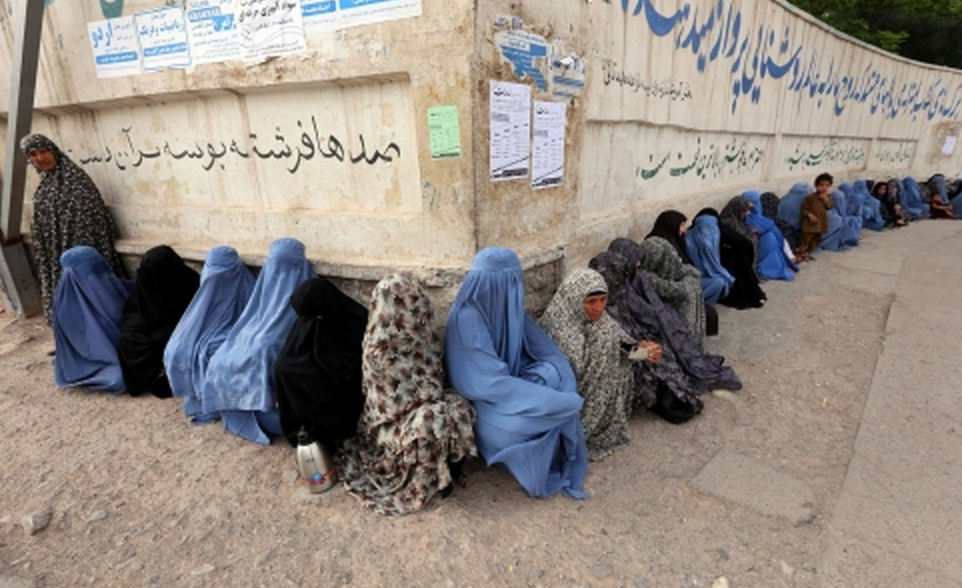Parwan Wafa is headmistress of a school for 1,800 girls between seven and 17 years old in a rural region of Afghanistan that has been terrorised by Islamist insurgents for more than a decade.
Four years ago, Wafa’s 17-year-old son was kidnapped. His captors threatened to kill him unless Wafa closed down her school, the Charbagh Village Girls’ Secondary School in Qarghayi district of Laghman province, where almost half the houses have been destroyed in the war with the Taliban.
For 15 months, Wafa, 47, received a barrage of phone calls telling her that the life of her son, Homayoon, was the price she would have to pay for educating girls. Then the boy was murdered. His body was thrown in a river, and when it washed up, his arms were tied behind his back and he had clearly been tortured.
“He was killed with brutality,” Wafa said in London last week, where she came to meet politicians and policymakers to discuss Afghanistan’s needs after international combat troops withdraw at the end of this year.
“There was no question about why he was killed. The phone calls would tell me to stop my work, close the school, stop educating girls. The only reason my son was killed was because I was involved in promoting girls’ education and the welfare of women in general,” she said.
“But it is not just about education. In 2006, I stood for parliament. The vote was rigged against me, even though the people of my own community supported me. There were others more powerful who did not want a woman in power.
“It is all and only because I am a woman,” said Wafa, with a sigh that betrays the resignation she shares with working women across her country for whom the threat of violence is as natural as drawing breath.
Afghanistan is expected to have a new president next month, following an election in April and run-off in June tainted, as the country’s elections generally have been, by fraud. President Hamid Karzai was barred constitutionally from seeking a third term.
The election result, due on July 24, will precede the withdrawal at the end of the year of most of the international troops that have helped Karzai stay in power for more than a decade, held the country together by keeping a Taliban insurgency largely under control and enabled the introduction of a constitution that protects women’s and human rights.
Karzai has, until recently, been lauded as an advocate of women’s rights, especially following his decree in 2004 passing the Elimination of Violence Against Women (EVAW law. In what appears to be his quest for a legacy, however, Karzai has quietly withdrawn his support for women’s rights in favour of promoting peace talks with the Taliban; for the Islamists, the cost of ending the war includes freedoms that Afghan women have enjoyed for less than a generation.
The men who have vied to replace Karzai, Abdullah Abdullah and Ashraf Ghani, both voiced support for women’s rights during campaigning and signed a petition by more than 110 women’s organisations calling for equality and an end to violence.
The outcome of the election has blundered into unknown territory, after Abdullah withdrew his support from the vote-counting process and accused Karzai and Ghani of collusion in perpetuating massive fraud.
Rights advocates fear that the withdrawal of the Western military and aid juggernauts, which have pumped hundreds of billions of dollars into Afghanistan since the overthrow of the Taliban in 2001, will also remove oversight essential to ensuring there is no rollback of the hard-won improvements.
Heather Barr, of Human Rights Watch, says that opponents of women’s rights have been “taking advantage of growing international fatigue with Afghanistan”, with parliamentarians last year arguing for the repeal of EVAW.
In an environment of such uncertainty, the best that Wafa says she hopes for is the status quo. “But even if the status quo continues, I can only see things deteriorating after the election is resolved,” she said.
“What really disappoints me is that the presidential candidates and their supporters are threatening violence rather than respecting the law. They are acting like warlords and this just perpetuates the fact that in Afghanistan, there is no rule of law.
“In this atmosphere, it is a very real possibility that the EVAW law will be sacrificed for the sake of reconciliation (with the Taliban),” Wafa said.

